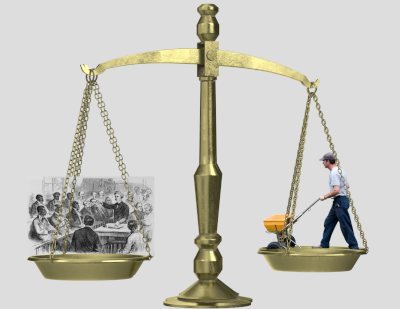
Legal - Regulatory Response
International, National, NYS, Westchester, Local Cities (Yonkers)
With far greater resources than ours, governments care for large properties and consider the impact on many people. What is the result of their investigation? The legal system has also looked extensively at the topic. What are their conclusions?
A question we might ask ourselves is with so many governments banning and restricting their use, why would we want to put pesticies on our lawn?
What are the conclusions about safety?

Rockland County
"Measures of relative toxicity have been determined by measuring their effect upon adult humans, who have greater mass and weights than children. Thus, children are at greater risk from exposures to even low levels of pesticides."
Westchester County
"the Westchester County government finds and declares that pesticides are linked to a number of acute and chronic health problems"
NYS Department of Parks, Recreation and Historical Preservation
"pesticides can cause potential environmental and human health risks, even when pesticides are used in compliance with regulatory requirements and manufacturer recommendations. Pesticides have been implicated in negative effects on human health, particularly children and sensitive individuals"
NYS Dept of Education
"no school or day care center can apply pesticides to any playgrounds, turf or athletic fields."
US Government (USGS)
"Commercial pesticide applicators, farmers, and homeowners apply about 1 billion pounds of pesticides annually to agricultural land, non-crop land, and urban areas throughout the United States...We've learned that pesticides can potentially harm the environment and our own health. Water plays an important role here because it is one of the main ways that pesticides are transported from the areas where they are applied to other locations, where they may cause health problems...We can say they [pesticides] pose a potential danger if they are consumed in large quantities, but, as any experienced scientist knows, you cannot draw factual conclusions unless scientific tests have been done. Some pesticides have had a designated Maximum Contaminant Limit (MCL) in drinking water set by the U.S. Environmental Protection Agency (EPA), but many have not. Also, the effect of combining more than one pesticide in drinking water might be different than the effects of each individual pesticide alone. It is another situation where we don't have sufficient scientific data to draw reliable conclusions."
Lawsuits due to Manufacturer "Failure to Notify of Risks"

What are they doing about it?
| Government Body | Public Property | Private Property |
|---|---|---|
| New York State | Banned | Notification Requirement Recommended |
| NYS Schools | Banned | |
| Westchester County | Banned | Neighborhood Notification Required |
| Rockland/Nassau/Suffolk/Ulster | Banned | Neighborhood Notification Required |
| New York City | Banned | Neighborhood Notification Required |
| Yonkers | Banned | Building Dept Notification Required |
National/International Bans on All Pesticides
Examples for Bans on Roundup and Paraquat
- Roundup
- Belgium: Banned the individual use of glyphosate.
- Canada: Eight out of the 10 provinces in Canada have some form of restriction on the use of non-essential cosmetic pesticides, including glyphosate.
- France: French authorities banned the sale, distribution and use of Roundup 360 in early 2019.
- Germany: Germany’s cabinet passed legislation in February of 2021 to ban glyphosate by 2024.
- The United Kingdom banned Paraquat, another widely-used herbicide, in 2007.
- Paraquat
- China banned paraquat, 2016.
- China bought Syngenta in 2017 to produce and sell paraquat to the world outside of China
- The UK banned paraquat, in 2007.
- The EU banned paraquat, in 2007.
- Sixty-seven (67) countries have banned paraquat, including 60 major developed countries
- The US EPA reapproves paraquat, 2023-24. Colorful fact: China, who banned Paraquat in their nation, sells it in the US.
Examples banned elsewhere and used in US
- Phorate has been banned in Brazil, China, European Union, India, Switzerland, the United Kingdom and Turkey, among others. The U.S. uses an estimated 500,000 pounds of phorate annually.
- Atrazine is a heavily-used herbicide in the U.S., with an estimated annual usage of 73 million pounds. already banned it, such as the European Union, the United Kingdom and Turkey.
- Terbufos is an insecticide and nematicide belonging to the organophosphates class. European Union, China, the United Kingdom and Canada, have long banned the pesticide.
- Aldicarb...ban in more than 100 countries, including China, Brazil, the United Kingdom, Mexico, Japan and the European Union. Countries such as Canada and Israel have also filed a ‘No Consent to Import’ the pesticide.
- While the U.S. has not prohibited the use of methomyl yet, other nations, including China, the United Kingdom, Turkey, and the European Union, have banned it.

